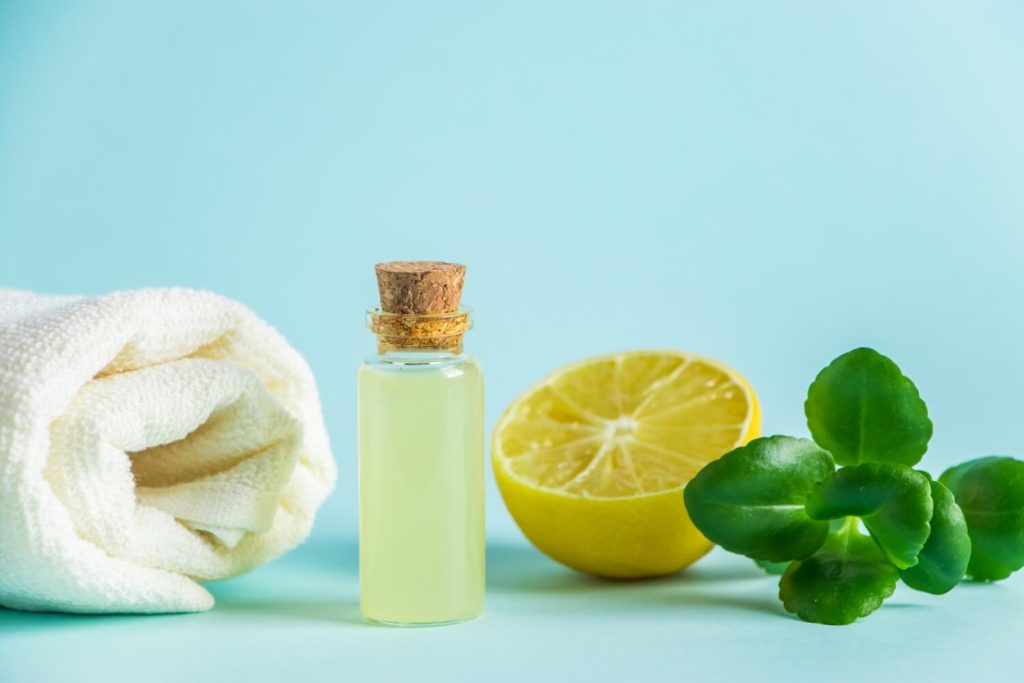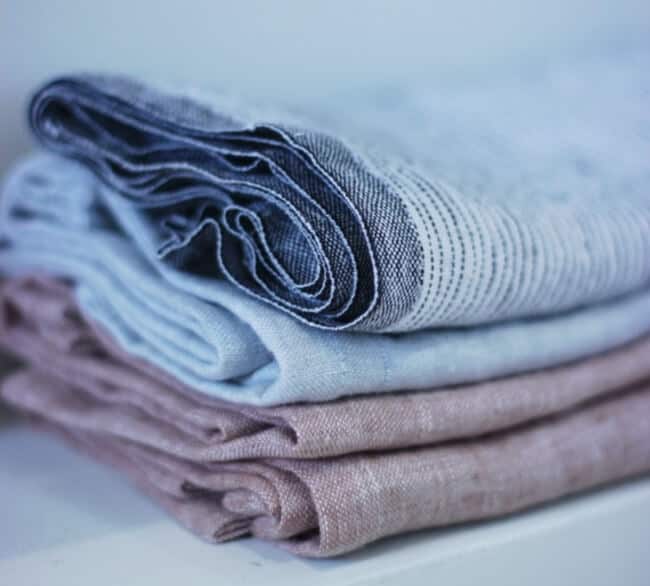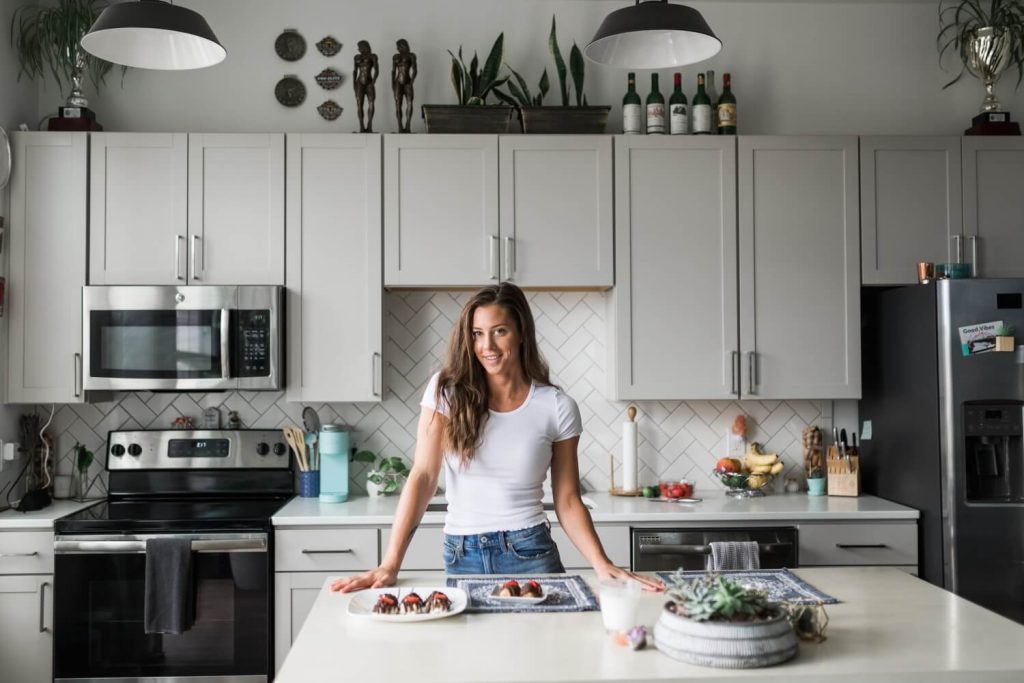Have you been asking yourself why your kitchen is so important?
Well,
From the food we eat to the metal and materials that make our utensils, there is not one thing in our kitchen equipment that has not been extracted from the planet.
With this in mind, you might have already realized the importance of preserving the resources of Mother Earth when it comes to how you run your kitchen.
From home care products to recycling and even the type of kitchen flooring you choose, there are many ways to make an eco-friendly kitchen.
In this article, I share 12 great tips for an eco-friendly kitchen!
- 1. Bring Your Own Bags to the Supermarket
- 2. Recycle
- 3. Filter Your Water
- 4. Use Natural Cleaning Products
- 5. Only Run Your Dishwasher When It’s Full
- 6. Ditch Plastic for Glass
- 7. Add a Low-Flow Aerator to Your Sink
- 8. Compost Your Food Scraps
- 9. Switch Your Bulbs to LEDs
- 10. Replace Your Teflon Cookware
- 11. Use Non-VOC Paint
- 12 . Eliminate Paper Towels
- Bottom Line
1. Bring Your Own Bags to the Supermarket
If our first piece of advice underwhelms, just remember that often the simplest of things are the first that we tend to forget.
Who hasn’t told themselves to bring a tote bag to the supermarket, only to look back on the car and begrudgingly remember they forgot to bring it?
Yet, using your own bag in the supermarket is essential for saving plastic, and you can do your part by ensuring you always have one in your car.
2. Recycle
You probably know the importance of recycling in order to avoid trash from infecting nature and preserving its many resources.
If you are serious about protecting the environment, why not invest in kitchen recycling bins?
They could easily be installed in your spare kitchen cabinets without taking up too much space.
3. Filter Your Water

Filtering your own water is not only a great way to save the money you normally spend on bottled water. It significantly lessens your contribution to the already frightening amount of plastic in the ocean too.
Filters sometimes come in certain models of refrigerators, but it’s also a good idea to have one installed in your kitchen sink for the water used in cooking.
Besides, when it comes to cost and benefit, buying loads of water bottles tends to be more expensive than buying a filter in the long run. Trust us – this is one of those great eco-friendly kitchen tips that pay off in great dividends!
4. Use Natural Cleaning Products

Another great idea for going green is committing to only using natural, eco-friendly cleaning products. This commitment, however, doesn’t necessarily mean giving up on quality, as there are many natural cleaning solutions that do as well, if not better than more aggressive chemicals, regardless of what kitchen worktops are best.
The best part is that even if many such products can be found in big market chains today, you still have the option of making your own at home! Check out this article to learn how to clean your home using lemon juice.
5. Only Run Your Dishwasher When It’s Full
Recent studies have shown that dishwashers are, in fact, more energy-and-water-efficient than manually washing the dishes, but there’s a catch:
You are still wasting water and energy by running your dishwasher only for a few plates.
As irritating as it may seem, the best thing to do is to let the dishes accumulate in the kitchen during the day and only run the dishwasher at night.
6. Ditch Plastic for Glass
Did you know that plastic can take over a thousand years to decompose in nature?
And yet, if you were to check on all the containers in your kitchen, you’d see they are predominantly plastic.
Sure, glass containers are more expensive, but they also have a longer life than plastic ones and don’t contain the same amount of chemicals.
If the price is really an issue, mason jars are a great, cheaper alternative, and you can always find one of a similar size to all your kitchen containers.
7. Add a Low-Flow Aerator to Your Sink
Adding a low-flow aerator to your kitchen sink can save an average of 700 gallons (2.65 m³) of water per year, according to the EPA.
Speaking money-wise, that equals around fifty dollars from your monthly water bill, which goes to show how an eco-friendly kitchen is also great for your pocket!
Since your kitchen sink is the water source of your house that sees the most activity, it makes for the best place to install one.
8. Compost Your Food Scraps

One of the best ways to reduce the amount of garbage we produce is to turn it into something useful, and composting it does so in a beautiful way.
Compost is an invaluable resource for gardening and farming, one that is also very expensive. The good news is you can completely circumvent this issue by producing your own!
All you need is a home composter which you can install in your kitchen.
Even if you don’t have a garden or a farm, you can still support people that do by selling or donating it to them. And, if you’re wondering what kitchen waste can be composted, just watch the video below.
9. Switch Your Bulbs to LEDs
Just like with the glass containers we discussed above, LED lights and LED-powered kitchen accessories offer a great range of benefits for you and the planet, even if they are a bit more expensive.
LED bulbs use only twenty percent of the energy a normal light bulb consumes while lasting twenty-five percent longer to boot. Although they are more expensive to purchase, their economy in energy consumption more than makes up for it in your electricity bill.
10. Replace Your Teflon Cookware

Do you have any non-stick or PTFE pans in your kitchen cupboards? If you do, it’s time to part ways with them, as they are literally poisoning you.
Yes, you heard it right, at elevated temperatures, the no-stick coating of your kitchen appliances releases toxic fumes that affect the air quality of your home and the planet.
The best replacement for them is cast-iron or stainless-steel cookware. You don’t really have to replace them all at once, just keep this information in mind for your next purchase.
11. Use Non-VOC Paint
If you have a mind for painting your kitchen in the near future, consider replacing standard kitchen paint with no-VOC as an eco-friendly alternative.
You see, VOCs (Volatile Organic Compounds) are, as the very name suggests, unstable and contain carbon compounds that rapidly evaporate into the air. As a result, they contribute to air pollution, causing a series of health issues related to breathing.
12 . Eliminate Paper Towels

You may ask yourself, are kitchen towels recyclable? Can kitchen rolls be recycled?
Since we are in the mindset of ditching things that make our kitchen hostile to the environment, it’s time to quit using paper towels.
Instead, why not go for reusable kitchen towels and rags for cleaning up spills? You don’t even have to buy new ones, just recycle old hand towels or washcloths into rags and make sure you have a good stock of them around.
Make sure to wash them in the cold cycle along with the rest of your laundry for maximum energy savings and water conservation, too!
Bottom Line
Despite the depth and vastness of our planet, it’s important to remember that it has finite resources that might one day run out if we don’t handle them responsibly.
The kitchen is the heart of the home, and as such, it plays a strategic role in creating a lifestyle that is friendly to the environment.
From the utensils you use to your cookware and even what you make with your food scraps, your time spent in the kitchen can have a significant environmental impact, so be aware of it, and take action.
Taking action can be as simple as growing a kitchen garden from seeds, for example. It’ll show everyone and remind you that your kitchen is an eco-friendly space.
As we showcased in this article, adopting an eco-friendly lifestyle can be done through simple gestures and attitudes that we take every day, of which we have shown just a few.
Let us know in the comments: have you been taking steps towards going green?
Is there anything you like to add to our list? Comment below with your tip for having an eco-friendly kitchen!
